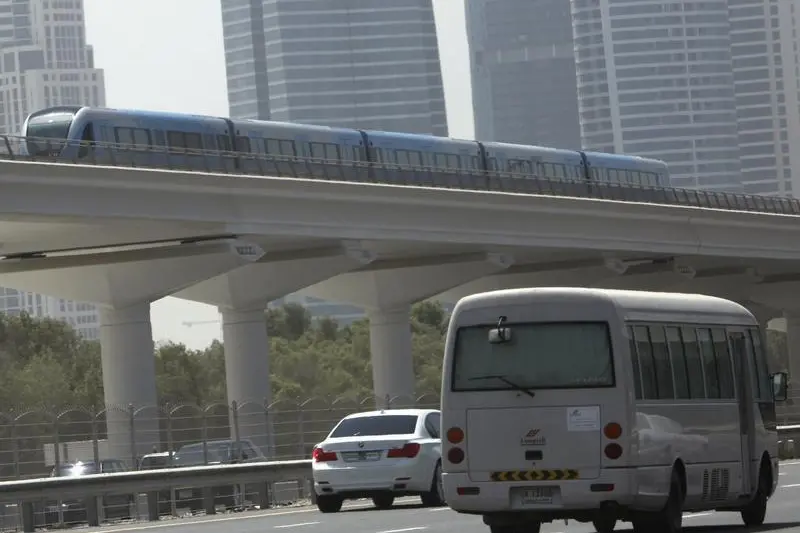PHOTO
Monday, May 29, 2017
Dubai: Motorists heading back home are facing longer than usual delays in traffic since Ramadan started.
Heavy traffic could be seen particularly on all highways connecting Dubai with Sharjah as well as on roads leading to Bur Dubai and Deira as residents are still coming to terms with the change in working hours for Ramadan. Shaikh Zayed Road, Al Ittihad Road and Shaikh Mohammad Bin Zayed Roads in Dubai were particularly congested specially during the evening as people rush to their homes for ending fast.
Several cases of accidents were reported on Saturday, Sunday and Monday, forcing authorities to issue advisories on safe driving while fasting.
Exhaustion, lack of sleep and urgency to reach home combine to cause higher rate of accidents during Ramadan, usually during evening peak hours.
The rate of accidents are usually higher during the first few days of Ramadan, when people are still struggling to adjust to the change in routines.
On Sunday, the Roads and Transport Authority (RTA) sent awareness messages to motorists urging them to avoid driving while feeling exhausted or sleepy.
Cautioning motorists against driving under circumstances that raise the chances of causing accidents Maitha Mohammad Bin Adai, CEO of RTA’s Traffic and Roads Agency, said, “Motorists have to appreciate the risks associated with driving while the driver is exhausted and distracted. Poor concentration, inattentiveness and tiredness raise the likelihood of causing crashes.”
She advised the motorists to be extra careful during Ramadan, the values of which call on believers to be more considerate towards others.
“The noble values radiated by the holy month must have a positive bearing on attitudes of persons highlighted by the compliance with the traffic rules and refraining from the encroachment on the rights of other road users,” she said.
According to Bin Adai the variations of the sleeping and office timings during Ramadan tend to influence the concentration level of fasting motorists, impacting their ability to drive or take appropriate decisions at the right time.
“To avoid accidents extra caution and attention is required from the drivers, particularly when driving back to home from work when the drivers’ level of concentration is at the minimum,” she said.
Meanwhile, twelve people sustained injuries in six accidents in Abu Dhabi on the first day of Ramadan, the Abu Dhabi Police announced in a statement on Sunday.
In total, around 1,394 traffic violations were recorded in the emirate on the first day of Ramadan, police added.
Motorists face traffic delays on first Ramadan working day
The violations included speeding, using a mobile phone while driving, and not wearing seat belts.
Giving details about the violations, Brigadier Khalifa Mohammad Al Khaili, Director of Traffic and Patrols Department of Abu Dhabi Police, said that 134 fines were issued for speeding, 82 for not wearing seat belts, 35 for using mobile phones, 148 for causing traffic congestion, and 38 fines were issued on cars blocking other vehicles.
Police urged drivers to avoid tailgating as most accidents that take place in Ramadan are attributed to the lack of leaving safe distance between vehicles.
Driving dos and don’ts during Ramadan
Leave sufficient distance between vehicles
Maintain an upright position while driving,
Keep the head raised
Stop driving when you feel tired, drowsy or sleepy
Don’t keep your trips till the last hour before iftar
Pull over at a safe place when it is time for iftar
By Shafaat Shahbandari Staff Reporter
Gulf News 2017. All rights reserved.





















